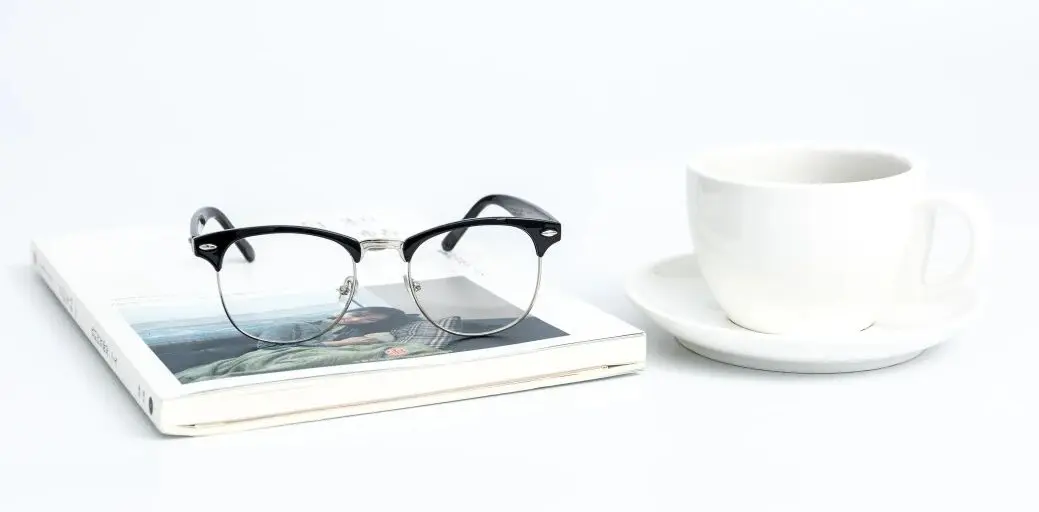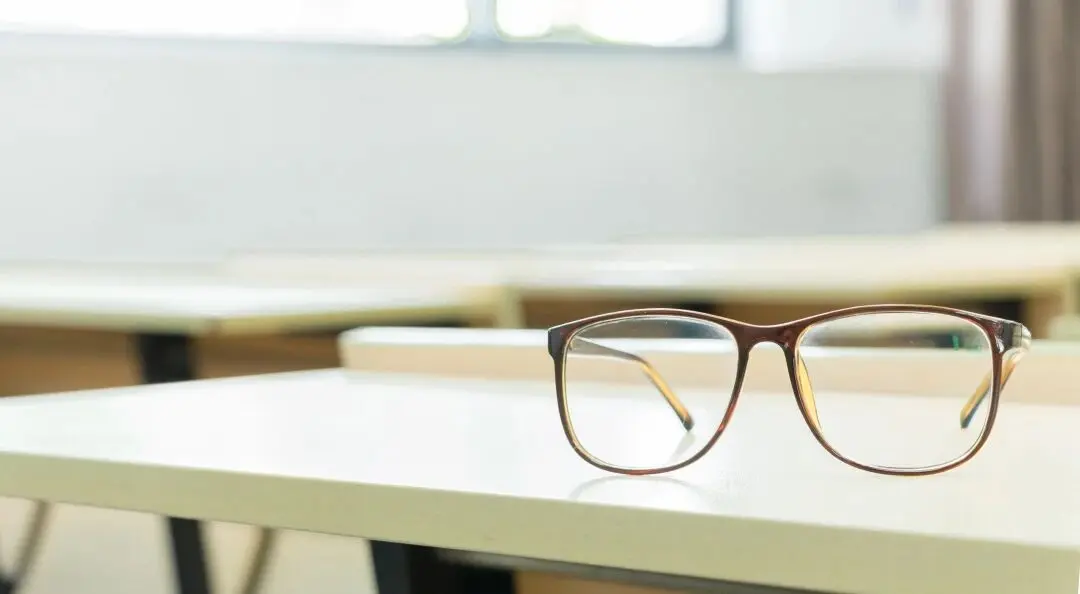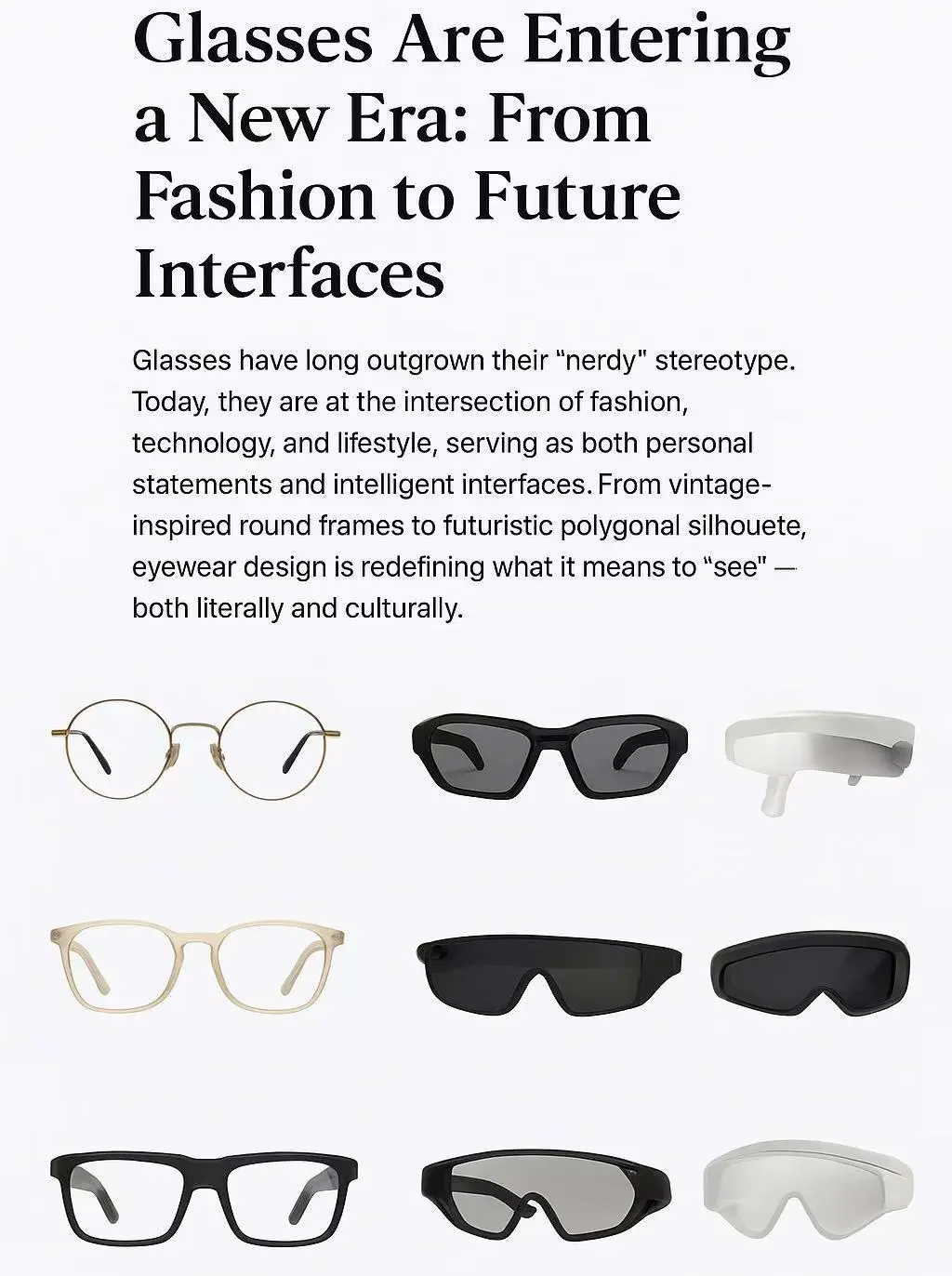Scientific interpretation of the frames usage cycle and lens operation
According to the "2024 China Eyewear Industry White Paper" released by iResearch Consulting,the average time between purchasing and replacing glasses by Chinese consumers is 19 months. The main reasons for replacing frames include changes in prescription,lens function requirements, surface wear or coating damage, and loss or accidental damage.

For frames used within two years, the main reason for replacement is a change in light intensity or functional mismatch. For frames used more than two years, replacement is more likely due to damage to the lens coating or the lens itself. Therefore, two years can be considered a "watershed" in the lens usage cycle.
What problems may occur with frames if they are used for too long?
1.Lenses turn yellow
Modern lenses are mostly made of resin, which undergoes multiple coatings and hardening processes. With extended use and the influence of environmental factors like humidity and temperature, both the material itself and the coatings attached to it may experience physical degradation. The most common symptom is yellowing of the lenses. Yellowing can alter the color balance of the wearer's vision, affecting not only visual perception but also color perception disorders, impacting daily performance.
2. Scratches all over
While mainstream lens coatings currently on the market possess a certain degree of hardness and abrasion resistance, they are still inevitably subject to scratches from hard objects after long-term use. Many consumers habitually wipe their glasses with a cleaning cloth, but they don't regularly clean the cloth itself. If contaminated with tiny, high-hardness particles, these particles can scratch the lens during wiping. Damage to the surface coating significantly impacts the lens's optical correction capabilities, leading to blurred vision and eye fatigue.

3. Optical center shift
Wearing glasses for extended periods of time can cause the frame to deform due to external forces, improper removal and storage, and subsequently shift the optical center of the lenses. This can increase the strain on the eyes, requiring more adjustments during vision, leading to increased eye fatigue and, in severe cases, even worsening myopia. In actual experience, the most noticeable sensation is discomfort.

How long should the scientific lens replacement cycle be?
If the lenses aren't yellowed, dented, or scratched, and the frames aren't noticeably deformed, do they still need to be replaced? Changes in optical power and the wearer's specific circumstances also need to be considered.
Children and adolescents' eyes are undergoing rapid development, and their optical power can change rapidly. It's recommended to have an eye exam every three months. If optical power changes, lenses should be replaced immediately. Furthermore, children and adolescents experience rapid physical development, so frame sizes should be updated promptly. Overall, it's recommended to replace glasses every six months to one year.
Adults have relatively stable vision, and before they develop presbyopia, they can replace their lenses every 18 months to 2 years. In daily life, they should undergo an eye exam every 6 months to 12 months. If they notice any problems like eye fatigue, they should consult a doctor promptly and consider fitting functional lenses.
Presbyopia progresses more slowly in middle-aged and elderly people. However, the unique optical design of progressive addition lenses, commonly worn by middle-aged and elderly people, requires more precise positioning and eye posture. They are also more sensitive to potential problems that may arise with daily use. Therefore, they should maintain an annual eye exam and address any discomfort or blurred vision promptly.
How to extend the service life of lenses?
The key to extending the life of your lenses lies in proper care and maintenance. When cleaning your lenses, use a dedicated cleaning cloth and cleaner, and avoid using abrasive materials. Keep your lenses away from chemicals, such as makeup and oils, to prevent damage to the lens coating. Furthermore, properly protecting your glasses and preventing frame deformation can also help extend the life of your lenses.













